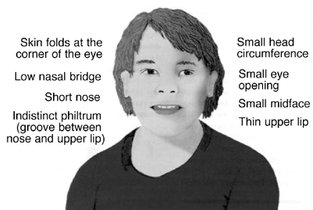How Alcohol Affects the Brain - Josh Waldron
- William
- Mar 5, 2020
- 3 min read
Updated: Mar 6, 2020
A person’s susceptibility to alcohol depends on a variety of factors. Such factors include a person’s age, gender, drinking history and nutrition. According to the premature aging hypothesis, “alcoholism accelerates chronological aging, beginning with the onset of problem drinking”. Younger people are less susceptible to alcohol because as we age muscle mass is replaced by fat tissue. As a result of this, older people who drink the same amount of alcohol as someone younger will generally have a higher blood alcohol concentration. As well as this, the amount of water in our body also decreases as we age, contributing to blood alcohol concentration. Furthermore, the older you are, the longer it takes for alcohol to pass through the liver before it moves into the bloodstream or is metabolised, increasing the risk of damage to your liver. As we age, our physical and mental functions including coordination, vision, hearing and reflexes become impaired. As alcohol further impairs these functions, older people are at more risk of accidents.
The areas of the brain that are most susceptible to alcoholism are the cerebral cortex (this plays a key role in perception, attention, memory and awareness), the limbic systems (important for expressing emotions and feeling), the basal forebrain (involved in learning and memory), the thalamus (necessary for communication within the brain) and the hypothalamus (this part of the brain releases hormones in response to stimuli such as stress and is involved in basic behavioural and psychological functions).
Alcohol and its Impact on the Frontal Lobe
The frontal lobe is connected to all other areas of the brain and is responsible for planning and regulating behaviour as well as inhibiting unnecessary or unwanted behaviours. As well as this, the frontal lobe supports adaptive “executive control” skills such as goal-directed behaviours, problem solving and good judgement. It is believed that there is an increased susceptibility of this area of the brain to alcohol and so disruptions to the normal inhibitory functions of the prefrontal networks often have interesting effects of releasing previously inhibited behaviours. As a result of this, people who are under the influence of alcohol may behave impulsively or inappropriately.
Impacts of Alcohol on the Left and Right Brain Hemispheres
Some investigators have theorised that the functions of the right hemisphere of the brain are more susceptible to alcoholism-related damage than the functions of the left hemisphere (Oscar-Berman 2000)
The left hemisphere plays the dominant role in communication and understanding the spoken and written word whereas the right hemisphere is mainly responsible for coordinating interactions within the three-dimensional world. This is why people who are drunk often stumble when walking and also struggle to reach and grab things around them. “New research has shown that alcoholics are impaired in emotional processing, such as interpreting nonverbal emotional cues and recognizing facial expressions of emotion” (Kornreich et al. 2002; Monnot et al. 2002; Oscar-Berman 2000).
Disruption of Neurotransmitter Systems
Over periods of days and weeks receptors in the neurotransmitter systems adjust to the chemical and environmental changes such as the changes that occur with chronic alcohol consumption. The imbalances that result from this can cause seizures, depression, agitation, sedation and other mood and behaviour disorders. Alcohol can also cause change in the activity of neurotransmitters and so cause neurons to respond, known as excitation, and to inhibit responding, known as inhibition. The major excitatory transmitter in the brain is the amino acid glutamate. Alcohol has been shown to “interfere with glutamate action” which may be the reason for effecting several brain functions such as memory loss and well as the temporary state of complete memory loss known as an alcoholic blackout. After the glutamate receptors have adapted to the long-term presence of alcohol that comes with alcoholism, withdrawal of alcohol can cause the receptors to become overactive. Such overactivity has repeatedly been linked with neuronal death. Most neurons in the central nervous system cannot repair themselves and so neuronal death can lead to permanent loss of some of the abilities of the central nervous system.
Alcohol and the Developing Brain
Continuous consumption of alcohol during pregnancy can lead to a range of physical, behavioural and learning effects of the developing brain of the child. The most serious of these conditions is known as foetal alcohol syndrome (FAS). Children with FAS are considerably smaller than average and also have distinct facial features as shown in figure 2. Furthermore, the children have less brain volume as well as fewer brain cells, or fewer correctly functioning neurons, leading to long-term problems to behaviour and learning.
Bibliography










Comments